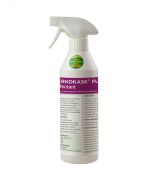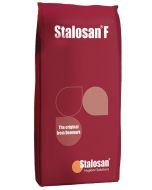Following the announcement of the Avian Influenza Prevention Zone (AIPZ) being put in place on 11th November, The Chicken Vet wanted to share some helpful information regarding AI and the best practice husbandry protocols that will help to prevent the disease from spreading to your flock.
Firstly, it is important to understand that wild birds, migratory or not, are a reservoir for viruses, parasites and bacteria. They will also contribute to significant losses in feed and increase environmental stress to your chickens and so the prevention of them from coming into contact with your flock or coop are paramount under even normal circumstances.
As highlighted through the AIPZ which is now in place across the UK, the most obvious pathogen to spread via wild birds is Avian Influenza which is of both economic and welfare concern within the commercial poultry industry.
During times of an outbreak, the Animal and Plant Health Agency (APHA) and other government organisations can put legislation in place, such as an AIPZ, that applies to all bird keepers, as the threat of Avian Influenza can be high, and needs to be contained and controlled in order to limit its wider impact on the commercial poultry industry, and thus the food chain.
In order to prevent the spread of diseases such as AI, it is recommended by the APHA to reduce contact between wild birds and poultry to limit the risk of cross contamination and the spread of pathogens. Best practice protocols for this would include netting certain areas of your range as well as avoiding feeding the chickens out on the range. You should always avoid feed spillage and keep water drinkers clean and out of reach of wild birds.
Other precautionary measures which should now be followed by all poultry and bird keepers include: minimising the movement of both people and animals from in and out of bird enclosures, clean and disinfect footwear worn in and around your range/ coop and keep areas where birds live clean and tidy, reduce any existing contamination by cleansing and disinfecting concrete areas, and fencing off wet or boggy areas.
For more information on the Avian Influenza Prevention Zone, and to keep up to date with the latest updates regarding the current AI situation within the UK, please see the gov.uk website here. https://www.gov.uk/guidance/avian-influenza-bird-flu
For additional advice on the best practice protocols, such as housing, cleaning and disinfecting as well as how to spot clinical signs of Avian Influenza, please see the useful guide here as published by Defra.




